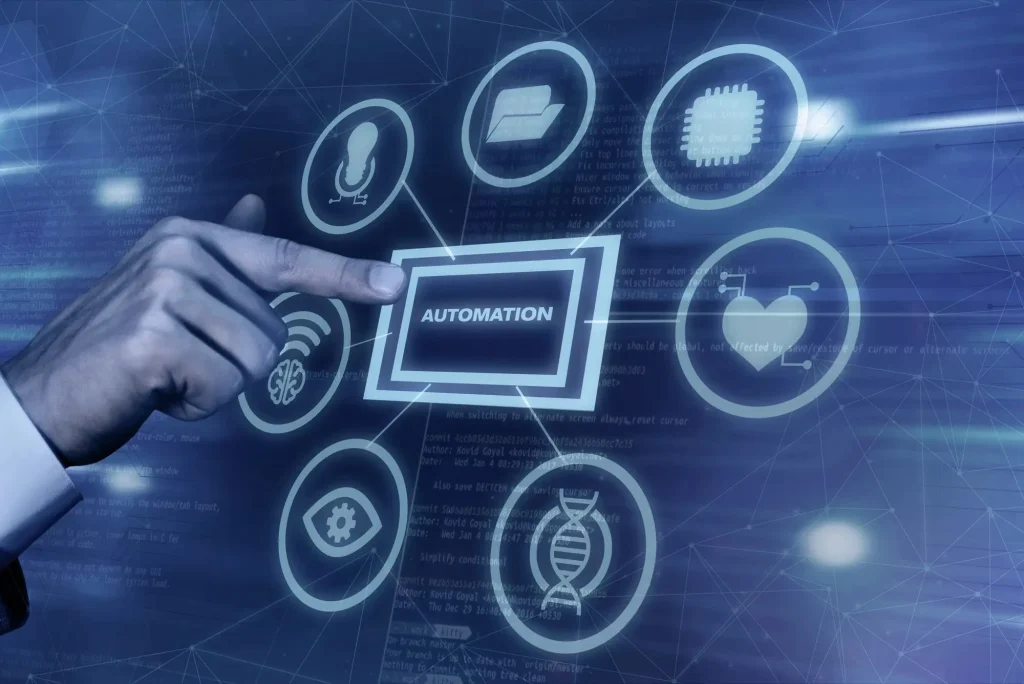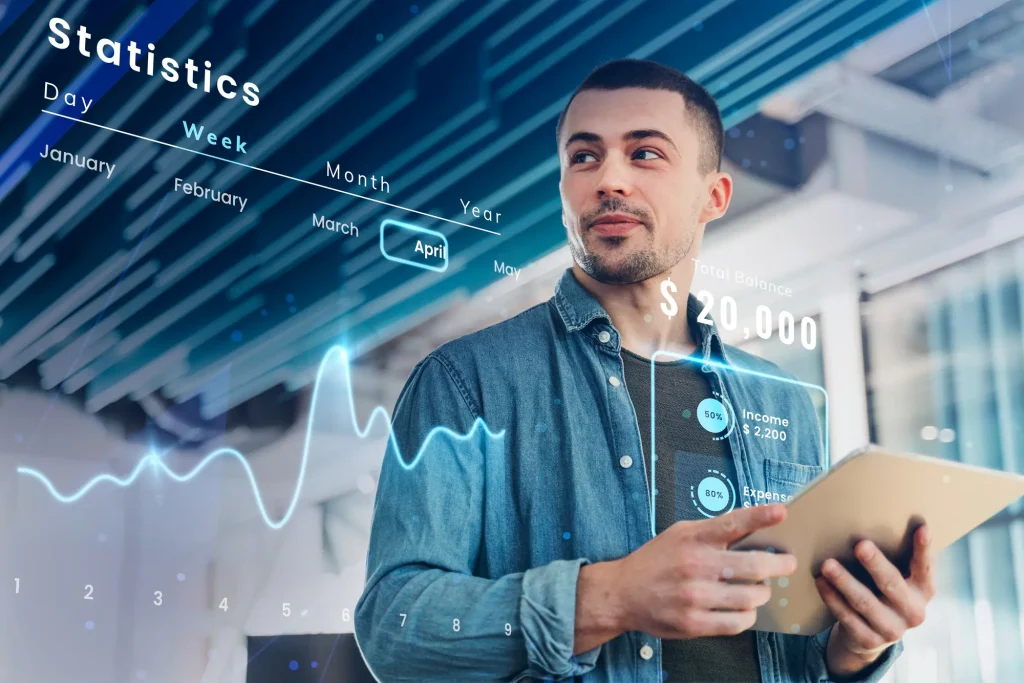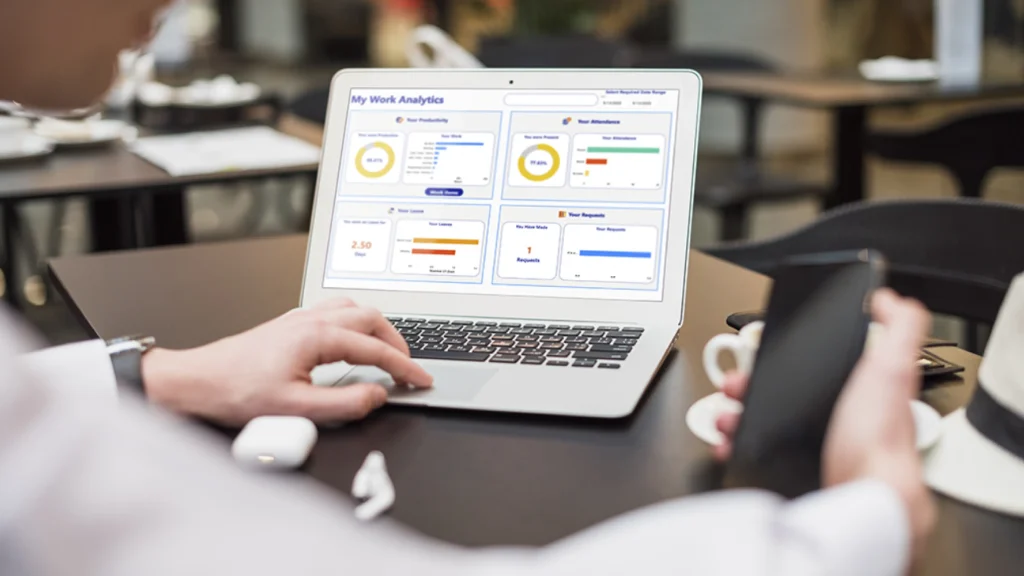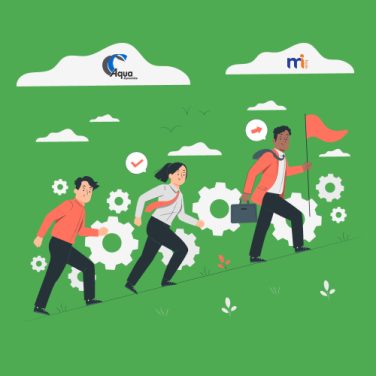Artificial Intelligence (AI) is revolutionising various industries, and Human Resources (HR) is no exception.
At its core, AI in HR leverages machine learning, automation, and analytics to manage and streamline HR functions more efficiently. This technology is increasingly becoming an essential part of human resource management, significantly impacting areas such as recruitment, onboarding, and performance management.
In the realm of recruitment, AI takes on repetitive tasks like resume screening and candidate matching, speeding up the hiring process and enhancing precision. AI-powered virtual HR assistants provide automated support, ensuring a seamless onboarding experience by taking care of administrative tasks.
Moreover, AI facilitates real-time insights into employee performance management, allowing HR professionals to make data-driven decisions that improve employee satisfaction and reduce turnover. The ability to tap into comprehensive HR analytics transforms the workplace by predicting trends and responding proactively.
As HR departments continue to evolve with AI technology, the role of AI is not just to replace tasks but to augment human capabilities, revitalising workforce management practices.
How can AI streamline HR processes?
The implementation of AI in HR is transforming how human resources divisions operate by introducing unprecedented efficiency and precision. At the forefront of this revolution is AI’s capability to process vast amounts of data, thus empowering HR professionals to make data-driven decisions.
One of the most significant benefits of Artificial Intelligence in human resource management is its power to redefine recruitment processes. AI tools, such as those offered by MiHCM, can automate candidate sourcing, resume screening, and interview scheduling, thereby accelerating the hiring process and enhancing recruitment efficiency.
By analysing recruitment metrics, HR can identify bottlenecks in the hiring process and make informed improvements, effectively reducing the time-to-fill positions.
Moreover, AI enhances employee engagement through personalised experiences and insights. With AI, HR departments can predict employee turnover more accurately, crafting proactive strategies to retain top talent.
This capability is crucial in mitigating turnover and maintaining workforce stability. AI-driven insights foster a deeper understanding of employee satisfaction, allowing HR to address potential issues before they escalate.
AI-driven HR analytics empower organisations with better strategic decision-making. By unlocking hidden patterns within workforce data, management can effectively forecast trends, assess performance potential, and navigate workforce dynamics.
MiHCM’s AI tools provide a comprehensive view of workforce demographics, enabling HR to strategically manage their talent pool with an understanding of diversity metrics.
Incorporating Artificial Intelligence for HR tasks not only streamlines operations but also augments them, allowing HR professionals to shift their focus from mundane tasks to strategic roles that require critical thinking and human interaction.
How can companies mitigate risks?
The integration of AI in HR is presenting new challenges alongside its numerous benefits. Key concerns include ethical challenges the technology introduces, particularly around data privacy and bias. Companies are increasingly aware that as AI in human resources grows, addressing these issues is crucial to ensuring its responsible use.
To manage these challenges effectively, companies must first establish a robust framework for ethical AI usage within HR. This involves:
- Implementing transparency in how AI models are designed, trained, and applied. Transparency builds trust and helps demystify AI processes for employees, thus reducing suspicion and fostering acceptance.
- Focusing on algorithmic fairness to minimise biases that may arise from flawed datasets. This means regularly evaluating AI systems to detect and address bias in recruitment or performance management tasks.
- Establishing comprehensive data privacy protocols to protect employee information. By clarifying what data is collected, how it is used, and ensuring compliance with data protection regulations, companies can protect privacy while maximising the AI HR advantages.
Inherent in these strategies is the emphasis on continuous feedback loops and monitoring. By integrating AI tools responsibly, businesses can leverage their potential while safeguarding ethical integrity.
Implementing AI responsibly within HR departments requires active engagement with ethical standards, ensuring AI becomes an ally rather than a liability in workforce management.
Companies that navigate these challenges effectively will not only comply with legal standards but will also lead by example, demonstrating the value of ethical AI applications in transforming HR operations.
Successful AI implementation in HR

Successfully integrating AI into HR operations requires a strategic approach and a commitment to continuous adaptation. A key aspect of successful implementation is learning from existing case studies that showcase how AI can transform human resources and AI initiatives.
For example, companies such as Genesis10 have pioneered the use of AI for hiring, automating processes like resume pre-screening and candidate matching. By leveraging AI, Genesis10 reduced the time spent on initial screenings and improved candidate suitability, resulting in a more efficient recruitment process and stronger hires.
Similarly, MiHCM’s AI-powered solutions have been instrumental in streamlining HR tasks through its MiHCM Data & AI platform. This suite of tools facilitates enhanced HR analytics and insights, enabling organisations to optimise talent acquisition and management. Companies using MiHCM have reported improved decision-making capabilities owing to the data-driven insights provided by the platform.
At KNB Communications, AI has been successfully integrated to enhance employee engagement and data analytics. By automating mundane tasks, employees have more time to focus on creative problem-solving and innovative projects, leading to heightened productivity and workplace satisfaction.
The ethical use of AI in HR
For HR departments to replicate these successes, they must focus on the ethical use of AI in human resources.
Implementing AI responsibly includes establishing clear guidelines for data transparency and algorithmic fairness, as highlighted in previous sections. Additionally, ongoing employee training is essential to ensure that teams are equipped to use AI effectively.
By studying these successful implementations, HR professionals can gain valuable insights into best practices for adopting AI.
What does the future hold for AI in HR?
The future of AI in HR is poised for groundbreaking advancements that will redefine human resources in unprecedented ways. As AI technologies evolve, we expect to see their increasing application in diverse HR functions, leading to greater efficiency and effectiveness in workforce management.
One of the anticipated developments is the deeper integration of AI-driven analytics. These advancements will empower HR professionals with enhanced predictive capabilities. For instance, they will be able to proactively manage talent and anticipate trends such as employee turnover and skill gaps, thus enabling data-driven strategic planning.
Moreover, AI is expected to revolutionise employee engagement strategies. Through advanced sentiment analysis and real-time feedback mechanisms, organisations can better understand workforce dynamics and address issues promptly, boosting morale and productivity.
A significant trend is the role AI will play in reshaping HR roles themselves. As automation takes over repetitive tasks, HR professionals will have the opportunity to focus on more strategic functions, including talent development and organisational culture building, thus enhancing their organisational impact.
Overall, as Artificial Intelligence in HR management continues to advance, it will foster a shift towards more integrated and strategic HR operations, offering long-term benefits such as cost reduction, improved employee experiences, and a more agile workforce.
Organisations embracing these future trends in AI will likely enjoy a competitive advantage, navigating the evolving HR landscape with innovative solutions.
AI in recruitment and onboarding
The application of AI in recruitment is revolutionising how organisations source, evaluate, and hire potential candidates. By automating repetitive tasks, AI is enhancing the efficiency of recruitment processes and enabling HR professionals to concentrate on more strategic aspects of talent acquisition.
One of the foremost benefits of incorporating AI in human resources is the creation of a seamless recruitment process. Tools like MiHCM SmartAssist enhance employee engagement through AI-driven insights.
This smart HR tool streamlines the recruitment pipeline by automating initial resume screening and ranking candidates based on matching skills and experiences to specific job postings. As a result, HR teams can swiftly identify the most suitable candidates.
Moreover, AI in recruitment extends beyond candidate screening. It enhances interview scheduling by utilising AI-driven systems which coordinate calendars and send notifications, thus reducing delays and optimising time management. This minimises the administrative burden traditionally associated with organising interviews.
In terms of reducing unconscious bias, AI plays a vital role. By applying AI algorithms that focus on objective data and attributes, companies can diminish biases that might arise from human involvement. This not only leads to a fairer recruitment process but also promotes diversity and inclusion within the workplace.
HR teams utilising AI-powered analytics from solutions like MiHCM’s AI tools benefit from data-driven insights, supporting improved strategic decisions in recruitment and onboarding.
By integrating these solutions, organisations can achieve not only increased recruitment efficiency but also enhance their overall talent acquisition strategy.
Transforming HR with Analytics

AI in HR is a game-changer, especially in performance management, providing real-time feedback and actionable insights to improve workforce productivity. By harnessing the power of AI, HR professionals can create personalised development plans for employees, driving better performance outcomes.
One of the key advantages of using AI-driven HR tools is their ability to deliver instantaneous feedback on employee performance. This helps in identifying strengths and areas for improvement, enabling managers to offer tailored coaching and development strategies.
Furthermore, AI significantly enhances the capacity of HR teams to manage the entire employee lifecycle. Tools like MiHCM’s AI solutions streamline operations by providing comprehensive HR analytics that assist in decision-making. These analytics reveal workforce dynamics, supporting strategic initiatives such as succession planning, skills development, and capacity building.
Another important aspect is the personalisation of employee engagement and development. AI technologies can process individual data and preferences to recommend specific training modules, ensuring learning experiences are both relevant and impactful. This personalisation not only aids in skill enhancement but also fosters a more engaged and motivated workforce.
The integration of AI into performance management systems transforms traditional HR processes, making them more transparent and effective. As organisations seek to optimise their workforce, embracing AI-driven analytics is crucial in crafting informed strategies that propel employee satisfaction and organisational success.
What are MiHCM’s AI tools and their benefits?

MiHCM offers a comprehensive suite of AI-powered solutions designed to enhance the different facets of human resource management. These tools integrate advanced AI capabilities to revolutionise HR tasks by improving efficiency, precision, and strategic decision-making.
MiHCM Enterprise stands out for optimising medium- to large-scale operations with its robust analytics that provides a holistic view of workforce demographics and performance metrics. This helps organisations to strategically manage talent and increase productivity.
MiHCM Lite is ideal for small enterprises, offering streamlined processes for recruitment and onboarding.
The standout feature of these tools is their ability to deliver real-time insights into HR dynamics. For example, MiHCM’s Data & AI platform provides actionable insights that empower HR teams to make data-driven decisions, thereby enhancing recruitment efficiency.
Furthermore, MiHCM’s AI-powered solutions aid in creating a seamless HR experience by automating routine tasks, thereby freeing HR professionals to focus on more strategic and impactful initiatives.
For organisations aiming to boost productivity, MiHCM SmartAssist ensures seamless HR operations with its advanced capabilities. It not only reduces administrative burdens but also supports strategic decision-making through comprehensive data analysis and insights.
As a smart HR tool, SmartAssist is instrumental in transforming human resource functions and augmenting the overall productivity of HR departments.
Transforming decision-making
In the age of digital transformation, HR departments are increasingly turning to AI in HR to leverage data-driven decision-making. By integrating advanced HR analytics, organisations can unlock invaluable insights into workforce dynamics, streamline operations, and enhance overall productivity.
MiHCM’s AI solutions stand at the forefront of this revolution, offering comprehensive analytics capabilities. These tools utilise Artificial Intelligence in human resource management to process vast datasets, providing HR professionals with deeper insights into employee performance, attendance patterns, and demographic features. The result is a more informed approach to managing talent and developing strategies tailored to organisational goals.
One of the standout features is the ability to conduct detailed performance analysis. Organisations can harness MiHCM’s analytics to group employees by performance trends, offering a clear view of workforce strengths and potential areas for improvement. This empowers HR to make strategic decisions regarding talent development and workforce planning, enhancing employee lifecycle management.
- Recruitment efficiency: Analyse time-to-hire metrics and applicant-to-hire ratios to optimise recruitment processes.
- Predictive analysis: Uncover patterns in employee turnover and absenteeism, enabling proactive management and retention strategies.
- Diversity insights: Evaluate workplace demographics to foster an inclusive and balanced workforce.
With MiHCM’s AI-driven capabilities, businesses are not only improving decision-making but also paving the way for a more strategic and responsive HR function. Through these tools, companies are equipped to turn workforce data into actionable insights, ultimately enhancing engagement and organisational agility.
Discover more about transforming your HR operations with MiHCM’s analytics by visiting MiHCM.



